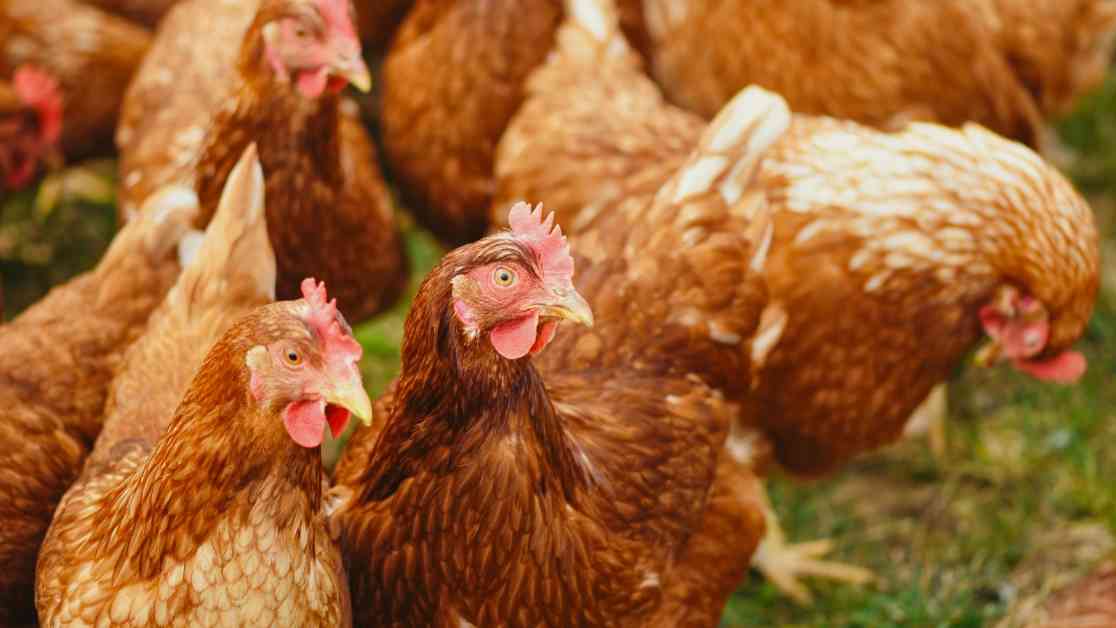Amid the growing fears surrounding the spread of avian influenza, commonly known as bird flu, many individuals are questioning whether consuming poultry products like chicken and eggs could put them at risk. Fortunately, experts from reputable institutions like the Mayo Clinic and the US Food and Drug Administration (FDA) are here to provide valuable insights and guidance on this pressing issue.
Understanding Bird Flu and Its Risks
Bird flu is a viral infection caused by influenza A viruses that primarily affect birds, although it can also be transmitted to other animals and humans in rare cases. The virus is typically spread through contact with infected birds, their feces, or contaminated surfaces. However, experts emphasize that the risk of contracting bird flu from properly cooked poultry and eggs is extremely low.
According to the FDA, the chances of humans getting bird flu through food consumption are minimal because infected poultry and eggs are usually not included in the food supply chain. Furthermore, thorough cooking of these products effectively eliminates the virus. It is crucial to cook chicken to an internal temperature of 74°C (165°F) and ensure that eggs are cooked until both the yolk and white are firm to prevent any risks.
The Role of Food Safety Measures
Health authorities stress the importance of practicing proper food safety protocols to further reduce the risk of contamination. This includes using separate utensils for raw and cooked foods, washing hands and surfaces with soap and water, and storing food at appropriate temperatures. The Mayo Clinic also highlights that pasteurized eggs and dairy products are safe from the virus, as pasteurization involves heating products to kill harmful pathogens, ensuring their safety for consumption.
Recent Outbreaks and Precautions
The current avian flu outbreak, which commenced in 2022, has resulted in the culling of over 100 million birds worldwide to prevent further spread of the virus. Recent cases in the United States prompted Governor Gavin Newsom to declare a state of emergency in California, underscoring the seriousness of the situation. Despite this, health officials continue to reassure the public that the risk remains low.
The Centers for Disease Control and Prevention (CDC) has reported 61 human cases of bird flu across 16 US states, with the majority of cases linked to direct exposure to infected birds or their environments. Notably, there has been no evidence of person-to-person transmission in these cases. Experts recommend that individuals who come into contact with live poultry or work in bird-populated environments take additional precautions, such as wearing protective gear and maintaining strict hygiene practices.
Can You Catch Bird Flu From Chicken or Eggs?
The consensus among health professionals is resoundingly clear: consuming properly cooked chicken or eggs does not pose a risk of contracting bird flu. The FDA and USDA collaborate to ensure that infected poultry products do not enter the food supply chain. Infected flocks are promptly identified and culled, minimizing the risk of contamination.
Dr. Timothy Uyeki, a renowned influenza expert at the CDC, affirms that the virus is highly sensitive to heat. “Cooking poultry to the recommended temperature deactivates the virus, making the food safe for consumption,” he explains.
What Consumers Need to Know
While the likelihood of contracting bird flu from food is extremely low, consumers must remain vigilant about food safety practices. Avoiding raw or undercooked poultry and eggs, maintaining cleanliness during food preparation, and adhering to governmental guidelines are crucial steps to safeguard against any potential risks.
Health officials also advise individuals in close proximity to birds, such as farmworkers and veterinarians, to monitor their health and promptly report any flu-like symptoms. Early detection and antiviral treatments can significantly mitigate the severity of illness.
In essence, although bird flu presents legitimate concerns for both the poultry industry and public health, consuming thoroughly cooked chicken and eggs remains safe. By adhering to food safety recommendations, consumers can continue to enjoy these dietary staples without fear of infection.













